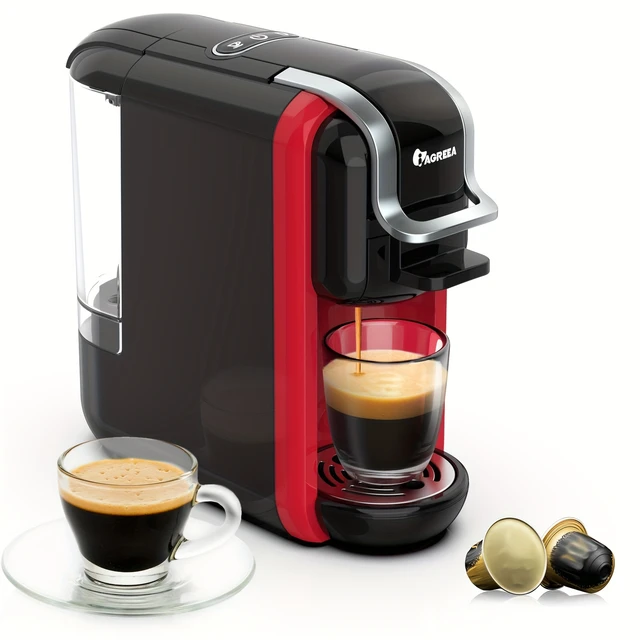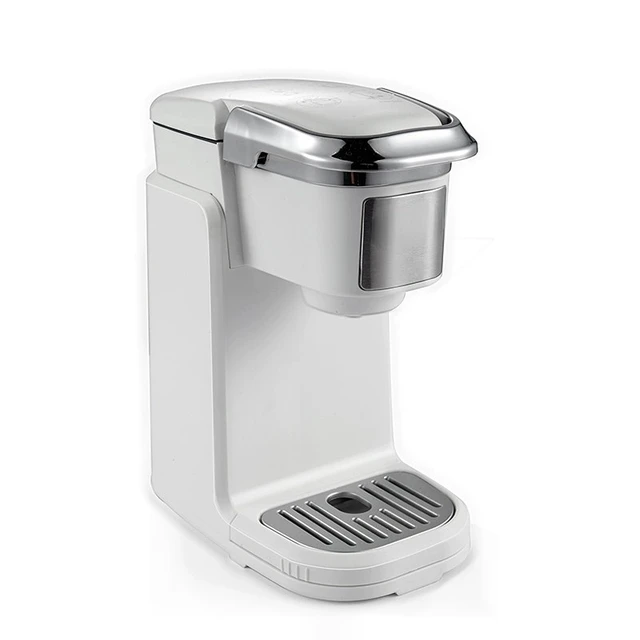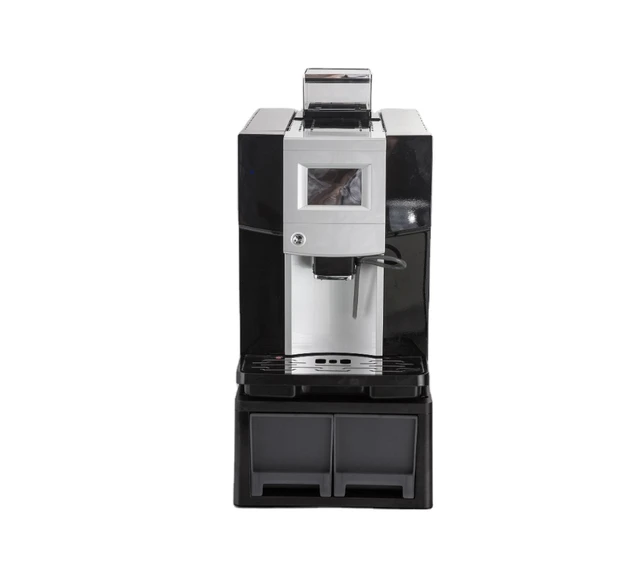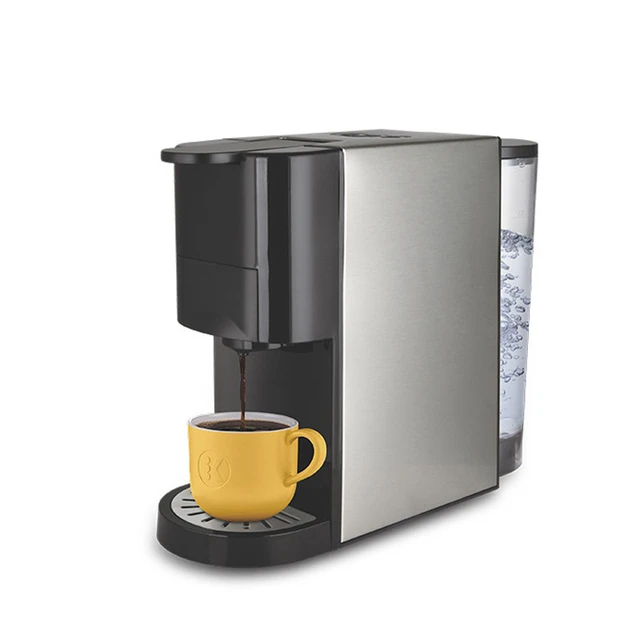
Introduction
Regular maintenance, including descaling, is essential to keep your Tchibo coffee machine in optimal condition and ensure the best brewing performance. Descaling removes mineral deposits that can accumulate over time and impact the taste and functionality of your machine. In this guide, we will explore the signs that indicate your Tchibo machine needs descaling and provide step-by-step instructions on how to descale it properly.

How do I know if my tchibo machine needs descaling?
Reduced Water Flow
One of the clearest signs that your Tchibo machine needs descaling is a noticeable reduction in water flow during the brewing process. If you observe a slower or weaker water flow than usual, it may indicate mineral buildup in the machine’s internal components. Descaling will help remove these deposits and restore normal water flow.
Longer Brew Times
If you notice that your Tchibo machine takes longer to brew a cup of coffee than before, it could be a sign of mineral buildup. The presence of scale on heating elements or clogged water passages can impede the machine’s ability to heat the water efficiently, resulting in extended brew times. Descaling can help remove these deposits and improve the machine’s performance.
Unpleasant Taste or Odor
Mineral deposits can affect the taste and aroma of your coffee. If you notice a change in the flavor profile or detect an unpleasant taste or odor in your brewed coffee, it may be an indication that your Tchibo machine needs descaling. Descaling removes any lingering scale or mineral buildup that can affect the quality and taste of your coffee.

Reduced Temperature
A buildup of mineral deposits can also impact the heating element’s efficiency, resulting in reduced water temperature during brewing. If your coffee is not as hot as it used to be or if you observe a significant drop in temperature during the brewing process, it may be time to descale your Tchibo machine. Descaling will help restore the proper functioning of the heating element and ensure optimal brewing temperature.
Visual Signs of Scale
Inspecting the internal components of your Tchibo machine can reveal visible signs of scale or mineral buildup. If you notice white or chalky deposits on the heating element, water reservoir, or other parts of the machine, it is a clear indication that descaling is necessary. These deposits can hinder the machine’s performance and should be removed through descaling.
Step-by-Step Guide to Descaling Your Tchibo Machine
Now that you have identified the signs that your Tchibo machine needs descaling, follow this step-by-step guide for proper descaling:
Read the Manufacturer’s Instructions
Before descaling your Tchibo machine, carefully review the manufacturer’s instructions provided in the user manual or accompanying documentation. Each machine model may have specific instructions and descaling recommendations. Familiarize yourself with the process and any precautions to ensure a safe and effective descaling procedure.

Gather the Required Materials
Gather all the necessary materials for descaling your Tchibo machine. This typically includes a descaling solution specifically designed for coffee machines, water, a container to collect the descaling solution and water, and a clean cloth or sponge for wiping down the machine afterward.
Prepare the Machine for Descaling
Follow these steps to prepare your Tchibo machine for descaling:
Empty the Water Reservoir: Start by emptying the water reservoir of any remaining water or coffee.
Remove the Filter and Coffee Grounds: If your machine has a removable filter or coffee grounds, remove them and discard any used coffee.
Prepare the Descaling Solution
Carefully follow the manufacturer’s instructions to prepare the descaling solution. Typically, this involves mixing the descaling solution with water in the recommended ratio. Use the appropriate amount of solution based on your machine’s capacity and the specific product instructions.
Descaling Process
The exact process for descaling your Tchibo machine will vary depending on the model, so refer to the manufacturer’s instructions for detailed steps. In general, the descaling process may involve the following:
Pour the Descaling Solution: Pour the prepared descaling solution into the water reservoir of your machine. Ensure that you follow the recommended quantity and guidelines provided in the instructions.
Run the Descaling Cycle: Start the descaling cycle as directed by the manufacturer. This typically involves turning on the machine and allowing the descaling solution to run through the machine’s internal components. Follow any prompts or instructions provided by the machine’s interface.
Rinse Cycle: Once the descaling cycle is complete, your machine may require a rinse cycle to remove any remaining descaling solution. Follow the instructions to run a rinse cycle with clean water through the machine. This will help remove any traces of the descaling solution.

Wipe Down and Rinse
After the descaling and rinse cycles, wipe down the external surfaces of your Tchibo machine with a clean cloth or sponge. Remove any residual descaling solution or water to ensure a clean and dry machine. Empty and rinse the water reservoir thoroughly to remove any remaining traces of the descaling solution or residue.
Brewing a Cleaning Cycle
Finally, run a cleaning cycle with fresh water through your Tchibo machine to ensure any remaining descaling solution or residue is flushed out. Follow the manufacturer’s instructions for running a cleaning cycle or refer to the user manual for specific guidance.
Regular Maintenance and Descale Schedule
To prevent excessive scale buildup and maintain optimal performance, it is important to establish a regular descaling schedule for your Tchibo machine. Consult the manufacturer’s instructions or user manual for recommended descaling intervals based on your machine model and usage patterns. Following a regular maintenance routine will help prolong the life of your machine and ensure the best brewing results.

Conclusion
Regular descaling is vital to maintain the performance and longevity of your Tchibo coffee machine. By recognizing the signs that indicate the need for descaling and following the step-by-step instructions provided in this guide, you can effectively remove mineral deposits and ensure the best brewing experience. Remember to consult the manufacturer’s instructions specific to your machine model and establish a regular descaling schedule to keep your Tchibo machine in optimal condition. With proper maintenance and descaling, you can continue to enjoy the full flavors and aromas of your Tchibo coffee for years to come.